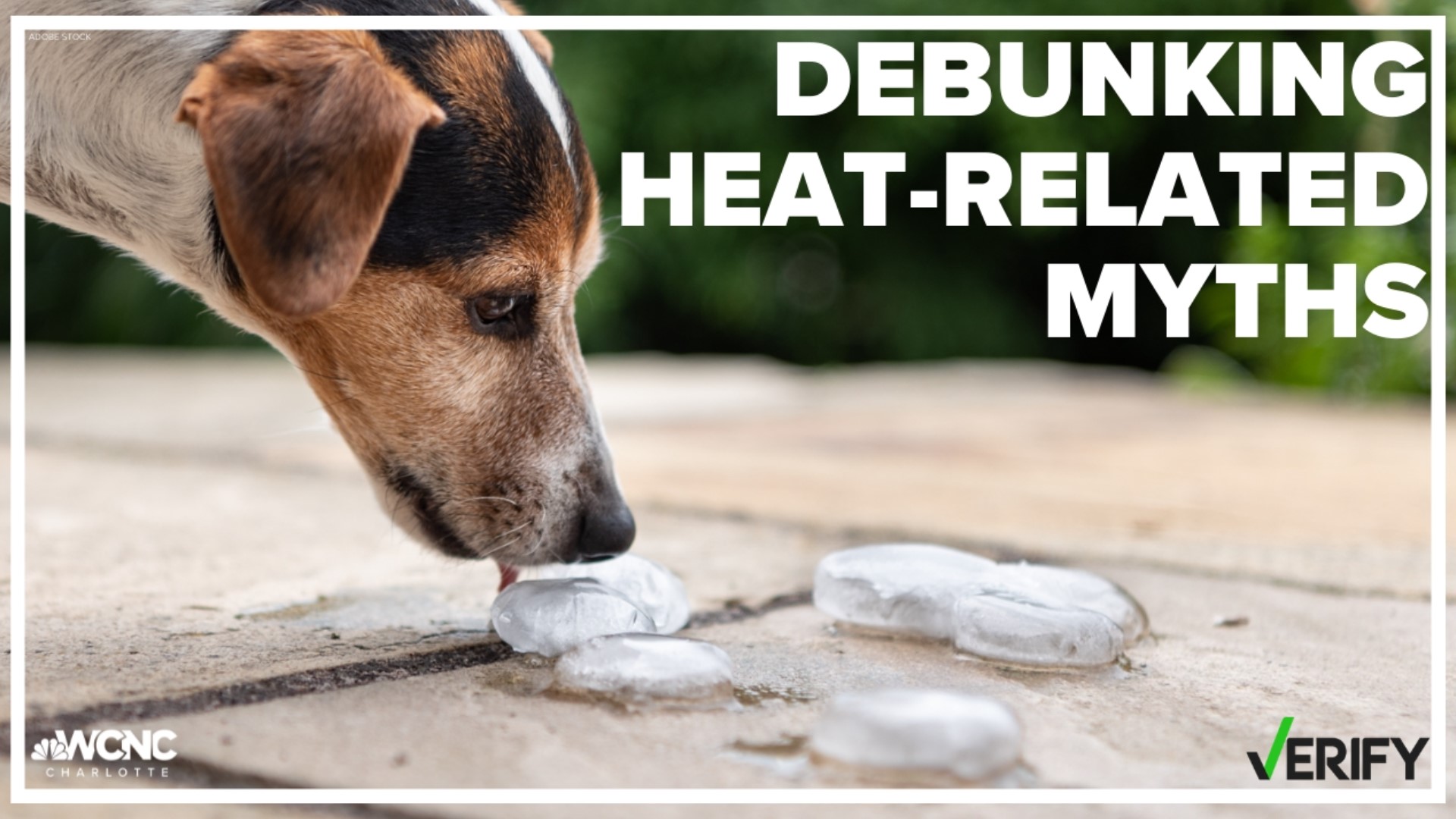CHARLOTTE, N.C. — The Carolinas are set to see another round of major heat, the WCNC Charlotte weather team reports. Temperatures are expected to get into the 90s this week, with some areas forecast to reach 100 degrees Wednesday.
The VERIFY team is tackling some heat-related claims about measures typically taken to stay cool.
THE QUESTION
Is it dangerous for dogs to eat ice cubes on a hot day?
THE SOURCE
THE ANSWER
No, it is not dangerous for dogs to eat ice cubes on a hot day, despite online claims that seem to resurface every summer.
WHAT WE FOUND
Misguided warnings state that ice can lead to bloating, spasms, and even heart problems for dogs.
In a blog post targeting the popular myth, Klein writes that he gives his own dogs ice as a treat and that veterinarians commonly recommend ice as a way to slowly reintroduce fluids to dogs recovering from surgery or stomach problems.
"Ice cubes can actually be used to slow down the rate of ingestion of water by overly excited dogs," Klein writes.
Klein, however, warns against using ice baths to cool overheated dogs, writing that it could be shocking. Instead, he said to use air conditioning, fans, and cool, wet towels to bring a dog's temperature back down to normal.
THE QUESTION
Is it possible for a person to overhydrate?
THE SOURCE
Dr. Keith Anderson, sports medicine and family medicine doctor, Novant Health
THE ANSWER
Yes, a person can overhydrate, causing a depletion of electrolytes and water poisoning.
WHAT WE FOUND
Signs of overhydration can range from nausea to muscle cramping, to symptoms as serious as seizure, coma, and death.
However, Anderson said it is rare to see and is largely a problem impacting athletes.
"I've really only seen it in a race setting," Anderson said, "in a marathon, a half-marathon, in an Ironman race, an endurance race."
He said it usually strikes someone who is drinking water or sports drinks at a faster pace than when they were training for a competition or event.
"They're usually a less experienced person, they're usually going slower," Anderson said. "They're stopping at all of these hydration stations along the race course."
It's important for people to stick to their normal drinking schedule, pre-hydrate and hydrate during the activity in moderation, and consume some calories when working out longer than one hour, he said.
"64 to 100 ounces is generally the right amount of water for your basic day," Anderson said. "If you're going to be exercising or sweating a lot, obviously you need to increase that, but it's hard to give people that upper limit."
Contact Vanessa Ruffes at vruffes@wcnc.com and follow her on Facebook, Twitter and Instagram.
VERIFY is dedicated to helping the public distinguish between true and false information. The VERIFY team, with help from questions submitted by the audience, tracks the spread of stories or claims that need clarification or correction. Have something you want VERIFIED? Text us at 704-329-3600 or visit /verify.

